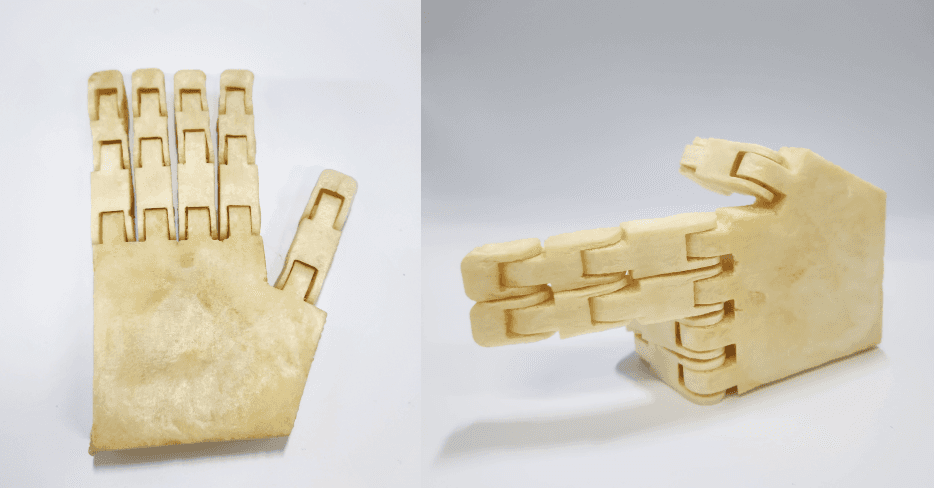A Digital Fabrication Method for Polyurethane Foam Prototype Using 3D-Printed PVA Molds
Haeun Lee, Andrea Bianchi
ShrinkCells: Localized and Sequential Shape-Changing Actuation of 3D-Printed Objects via Selective Heating
Haeun Lee, Andrea Bianchi



Abstract
Polyurethane foam was known for its exceptional lightweight properties and remarkable strength relative to its weight. However, its inherent property of uncontrolled expansion has limited its utilization primarily to insulation applications, while it remained less popular as a prototyping material. In this study, we have developed a method for creating polyurethane foam models that retain the material's unique properties, allowing for shape predictability and user-friendly application without requiring specialized machinery. We designed a solvable Polyvinyl Alcohol (PVA) mold and injected the polyurethane foam. This method enables users to mold polyurethane foam into the desired shape precisely. Furthermore, we conducted experiments with three representative types of polyurethane foam, investigating their product characteristics. Through this research, we propose a method for individual makers to allow them to craft the shapes they desire while enjoying the material's inherent qualities.
Abstract
Polyurethane foam was known for its exceptional lightweight properties and remarkable strength relative to its weight. However, its inherent property of uncontrolled expansion has limited its utilization primarily to insulation applications, while it remained less popular as a prototyping material. In this study, we have developed a method for creating polyurethane foam models that retain the material's unique properties, allowing for shape predictability and user-friendly application without requiring specialized machinery. We designed a solvable Polyvinyl Alcohol (PVA) mold and injected the polyurethane foam. This method enables users to mold polyurethane foam into the desired shape precisely. Furthermore, we conducted experiments with three representative types of polyurethane foam, investigating their product characteristics. Through this research, we propose a method for individual makers to allow them to craft the shapes they desire while enjoying the material's inherent qualities.
Haeun Lee, Andrea Bianchi
© 2024. Haeun Lee. All Rights Reserved
Last Update Nov. 2024
© 2024. Haeun Lee. All Rights Reserved
Last Update Nov. 2024